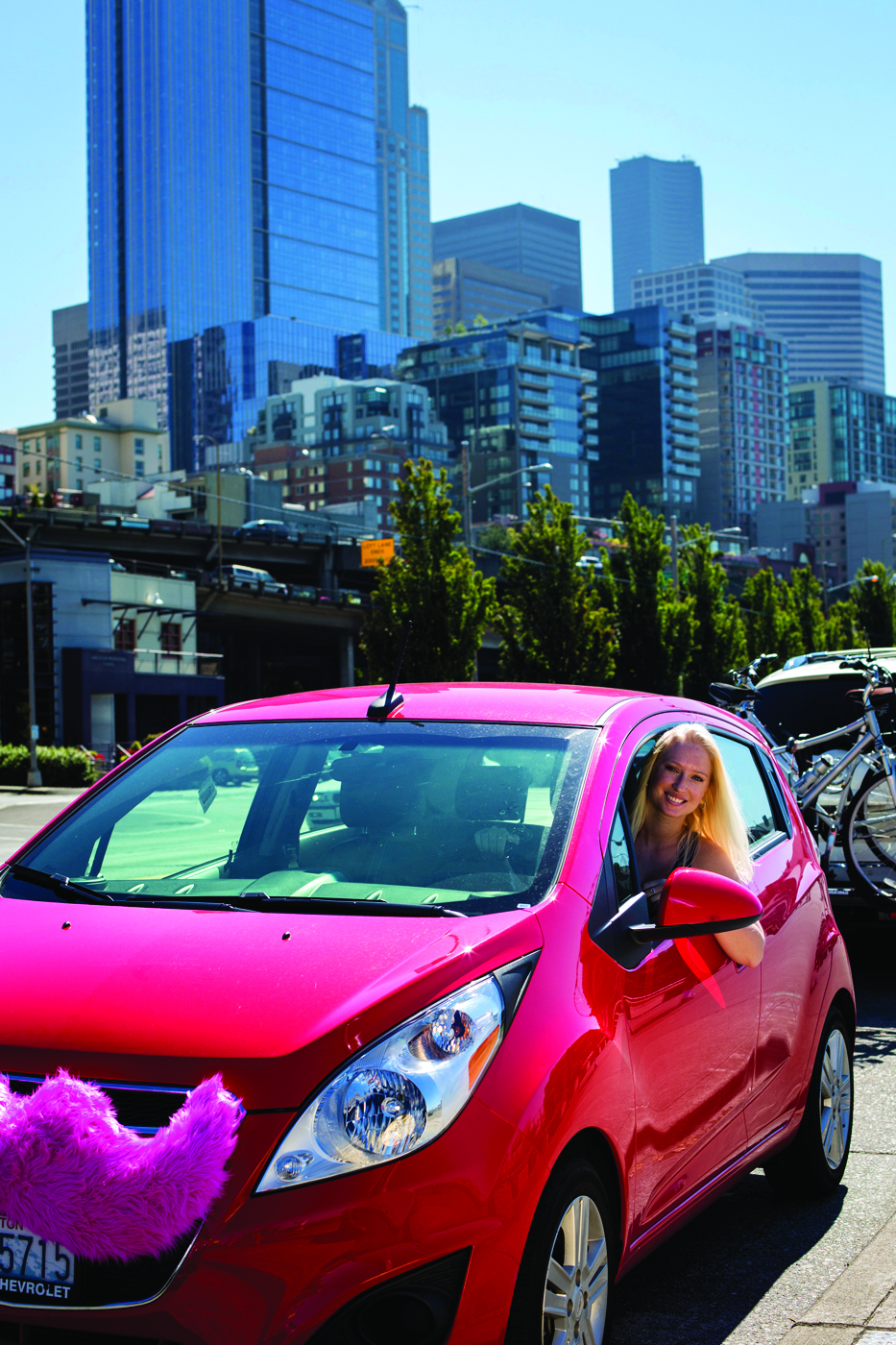With the City Council’s Committee on Taxi, For-Hire and Limousine Regulations set to vote Friday on proposed legislation designed to better regulate a quickly evolving industry – a decision that could potentially lead upstart rideshare outfits like Lyft, UberX and Sidecar to give up their operations in Seattle – many supporters of these new smartphone-based transportation options are taking the opportunity to sound off. These voices include the predictable, like rideshare companies themselves, along with leaders in the nightlife and technology fields. (Here’s some background on the drama.)
Ostensibly drafted to provide for greater safety and fair competition between the city’s existing taxis, for-hire vehicles, limousines and rideshares, among other things the proposed legislation includes clarification on the type of insurance that would be required for rideshares to operate legally in Seattle, along with placing caps on the number of rideshare drivers allowed to operate in the city and the number of hours these drivers could work in a week.
According to Lyft spokesperson Erin Simpson, it’s the caps that her company finds most troubling. She warns that if the Council passes the legislation in its current form it will “essentially shut Lyft down in Seattle.”
“We support regulation when the goal is to protect public safety, which is our top priority, and have worked collaboratively with other cities and states to set the highest standard for safety while allowing for innovative new transportation options,” says Simpson “These restrictions have no connection to public safety; they simply limit competition and reduce transportation options for Seattle residents who have come to rely on these new affordable, reliable alternatives.”
After reading over Seattle’s proposed rideshare regulations, Simpson says Lyft believes the motives of the proposed action are more about protecting existing taxi and for-hire drivers than the commonly stated goal of increasing safety.
“By limiting the ridesharing community to 300 drivers across all platforms who may only drive 16 hours per week, it is clear that these rules are designed to protect existing industries,” Simpson says. “The committee claims that new transportation options available to Seattle residents are ‘competing with existing taxicab and for-hire drivers in the transportation market and causing negative impacts,’ while the City of Seattle’s taxi usage data shows that taxi companies have made more money in 2013 than in previous years.”
For comparison purposes, California and Washington DC have also recently regulated rideshares, although they’ve managed to do so without imposing rules that force the Lyfts of the world out of business. As nightlife leaders Jessica Summa-Kusiak and Pete Hanning write today in an opinion piece for PubliCola, that’s the kind of approach they’d like to see in their city.
“Many of our customers like the real-time accountability built into ridesharing services. They want quick, safe and reliable service, and the fact that customers can track the drivers on their smart phones, so they know exactly how far away their ride is, is important. We believe that the emergence of these services has meant there are a lot fewer impaired drivers on the road,” the op-ed reads. “That is why we are so concerned that some of the city council members seem intent on restricting the availability of these services. No other jurisdiction in the country has imposed caps. Instead, we urge the Council to remove the restrictive caps and instead allow innovation to grow and thrive in Seattle.”
Meanwhile, leaders in the tech industry are concerned about what kind of precedent the proposed rideshare legislation would set. In a letter to Mayor Murray and the City Council dated Feb. 7, a bevy of voices including Nick Hanauer, Melinda Lewison and Llew Pritchard urge the city to encourage transportation innovation, not stunt it.
Here’s that letter:
Rideshare Letter
As mentioned, the City Council’s Committee on Taxi, For-Hire and Limousine Regulations set to vote Friday on proposed legislation. According to Simpson, Lyft co-founder John Zimmer will be on hand, as will “a few hundred community RSVPs.” If history is any indicator, the taxi and for-hire industries will be equally well represented in what should be one of the most contentious committee meetings in recent history.
You can find a draft of the proposed legislation here.








